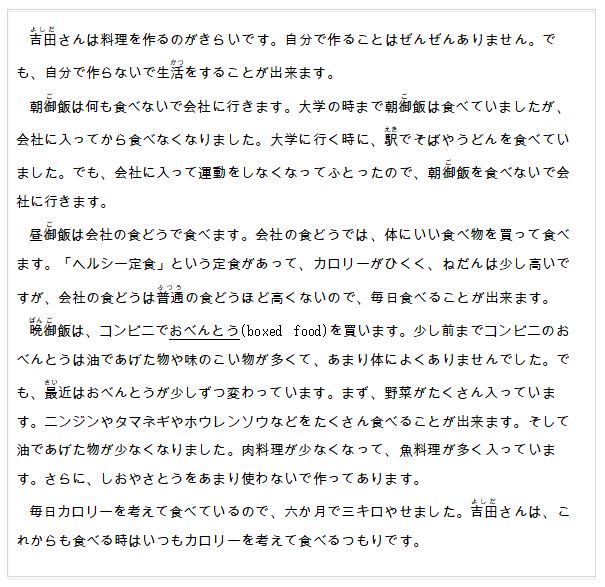Fill in the blanks to complete the dialogues, paying special attention to whether the conversation is formal or informal.
ANTONIO PÉREZ: Buenos ______________1, _________________2 González.
MIGUEL GONZÁLEZ: Muy buenos días, señor Pérez. ¿Cómo _________________3?
ANTONIO PÉREZ: Muy bien, gracias. ¿ _________________4?
MIGUEL GONZÁLEZ: Estoy bien. Hasta luego.
MARISELA: ¡Hola! Me llamo Marisela. ¿Y tú?
ELENA: Me llamo Elena. _________________5.
MARISELA: Igualmente. ¿De dónde _________________6?
ELENA: Soy de Cuba. ¿ _________________7?
MARISELA: Yo soy de Colombia. Hasta _________________8.
ELENA: Adiós.
1. días
2. señor
3. está (usted)
4. ¿Y usted?
5. Mucho gusto / Encantada
6. Eres (tú)
7. Y tú
8. luego / mañana / pronto
You might also like to view...
When Yoshida-san was in college,

a. he didn't eat breakfast either.
b. he ate breakfast at home.
c. he ate breakfast at the train station.
d. he ate breakfast at the university.
Circle the verb that agrees in number with the subject in each of the following sentences. Neither the coaches nor the captains (was, were) available for an interview
What will be an ideal response?
Chunking is relevant only for Web-based documents
Indicate whether the statement is true or false
Some movies are adaptations of books. ________________
Indicate whether the statement is true or false